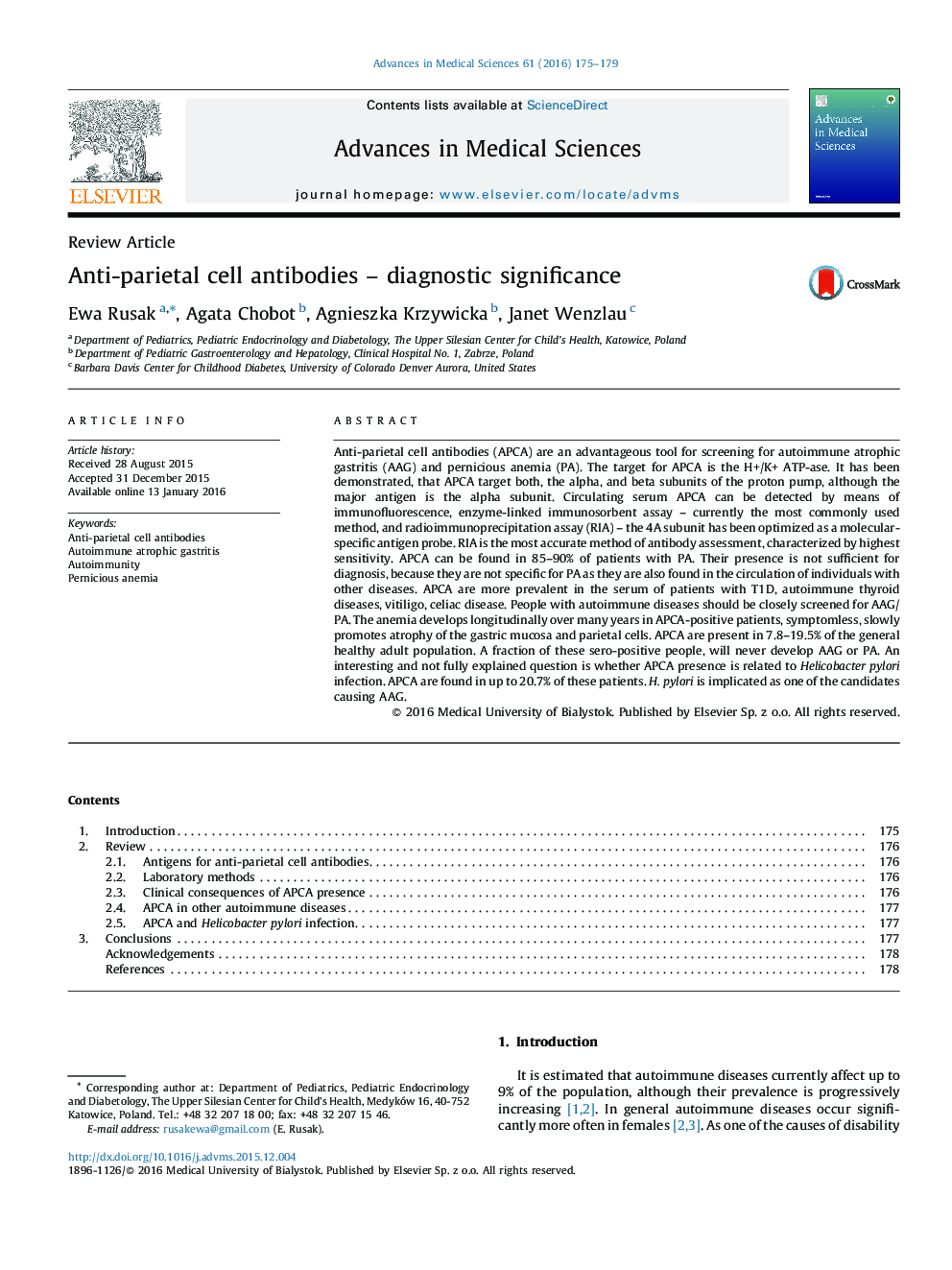| کد مقاله | کد نشریه | سال انتشار | مقاله انگلیسی | نسخه تمام متن |
|---|---|---|---|---|
| 2031823 | 1542799 | 2016 | 5 صفحه PDF | دانلود رایگان |
Anti-parietal cell antibodies (APCA) are an advantageous tool for screening for autoimmune atrophic gastritis (AAG) and pernicious anemia (PA). The target for APCA is the H+/K+ ATP-ase. It has been demonstrated, that APCA target both, the alpha, and beta subunits of the proton pump, although the major antigen is the alpha subunit. Circulating serum APCA can be detected by means of immunofluorescence, enzyme-linked immunosorbent assay – currently the most commonly used method, and radioimmunoprecipitation assay (RIA) – the 4A subunit has been optimized as a molecular-specific antigen probe. RIA is the most accurate method of antibody assessment, characterized by highest sensitivity. APCA can be found in 85–90% of patients with PA. Their presence is not sufficient for diagnosis, because they are not specific for PA as they are also found in the circulation of individuals with other diseases. APCA are more prevalent in the serum of patients with T1D, autoimmune thyroid diseases, vitiligo, celiac disease. People with autoimmune diseases should be closely screened for AAG/PA. The anemia develops longitudinally over many years in APCA-positive patients, symptomless, slowly promotes atrophy of the gastric mucosa and parietal cells. APCA are present in 7.8–19.5% of the general healthy adult population. A fraction of these sero-positive people, will never develop AAG or PA. An interesting and not fully explained question is whether APCA presence is related to Helicobacter pylori infection. APCA are found in up to 20.7% of these patients. H. pylori is implicated as one of the candidates causing AAG.
Journal: Advances in Medical Sciences - Volume 61, Issue 2, September 2016, Pages 175–179
